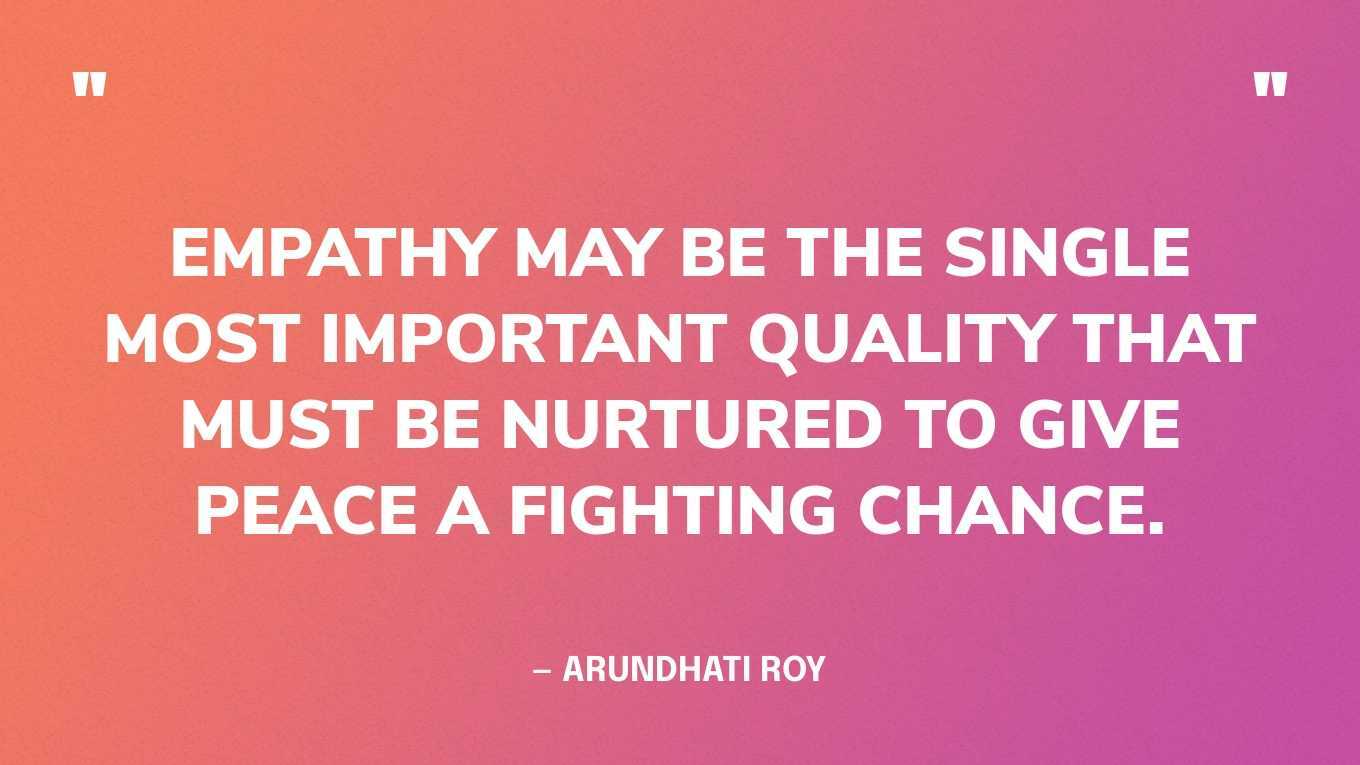
In a world that can feel deeply divided, those who can practice empathy have a unique ability to make a more positive impact. Empathy gives us the power to compassionately understand the emotions and experiences of others, to help others feel seen and known, and to be mindful of how our actions and words affect others. It can allow us to engage with the pain and suffering in the world and mourn bad news and problems before we join in creating more equitable solutions.
What is Empathy?
Empathy is the capacity to comprehend and resonate with the emotions, thoughts, and experiences of others. It is often categorized based on the nature of the emotional (heart) and cognitive (head) processes involved.
Cognitive Empathy, also known as perspective-taking, involves understanding and grasping another's perspective and thoughts without necessarily sharing in their emotional experience. It requires the ability to see that others may have different beliefs or knowledge and appreciating the diversity of cognitive experiences.
Emotional Empathy, what we often mean when we use the word empathy, goes beyond mere understanding, and involves compassion, feeling the emotions of others as if they were your own. This type of empathy enables individuals to resonate with someone else's emotional state, sharing in their joy, sorrow, or other feelings.
What Does Empathy Have to Do with Equity and Belonging?
Both types of empathy act as a bridge between individuals, fostering a sense of shared humanity. In the pursuit of equity and belonging, empathy becomes a foundational tool for acknowledging the lived experiences of marginalized communities, our own and others, leading to a collective commitment to rectify systemic injustices.
If we are to truly recognize our shared humanity, it’s important to also practice self-empathy – a compassionate understanding of our own emotions and needs. By connecting with our values, we gain clarity on the things that are most important to us and can make choices that are consistent with those values. For example, if I am in a conversation where I feel psychologically safe but still disagree with someone and say to them “I remember when I used to hold that belief. I’ve since come to understand that situation in a different way. Can I share with you what I’ve learned?” I may be able to create a more effective, less polarizing outcome.
Beware of False Equivalencies
While valuable, empathy can lead to false equivalencies if applied without critical thinking. Yes, empathy involves understanding and sharing the feelings of others, but when this is based solely on individual experiences and perspectives, it may lead to the assumption that all experiences are equally valid or comparable. Ignoring systemic factors, neglecting power dynamics, and projecting personal biases can oversimplify complex issues.
Consider the false equivalency that might arise when comparing workplace grievances. Imagine two coworkers sharing their challenges—one facing microaggressions due to their race, and another experiencing frustration over task delegation. While empathy for both situations is essential, equating the experiences without recognizing the systemic racism influencing the first case may lead to a false equivalency. Without acknowledging the historical context and power dynamics affecting the coworker's experience of racial microaggressions, the false equivalence minimizes the impact of racism.
Why It Matters
Empathy is a cornerstone of equity work. By understanding the impact of historical and current injustices, empathy becomes instrumental in developing effective strategies to create more equitable outcomes. It cultivates collaboration by bringing together diverse perspectives, lived experiences, resources, and expertise to address complex challenges. Ultimately, empathy increases trust and psychological safety by developing a deeper understanding of the human experience.


